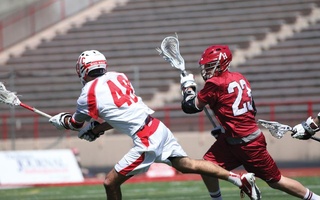The murder of a United States envoy is always a great misfortune and a significant cause for national anger. The death last week of J. Christopher Stevens, late U.S. ambassador to Libya, provoked outrage across the world and for a short time had the potential to cause a crisis for President Barack Obama. The reasoned cautiousness in the White House’s response has since been overlooked as furor throughout the world continues to be directed against the now infamous amateur film “The Innocence of Muslims.”
Amid the continuing coverage of anti-American riots throughout the Islamic world and beyond that show little sign of subsiding, we would like for a moment again to focus on the death of Chris Stevens, an event that appears orchestrated by terrorists who took advantage of anti-American protests to stage this atrocity. Obama and many others have paid tribute to Stevens’ skills and passion as a diplomat with eloquence and emotion. The first U.S. ambassador killed in over two decades also led a career that should stand as a model for idealism and success in a public service career.
Stevens, raised in Northern California, chose to begin his post-college life (he graduated from the University of California at Berkeley in 1982) by serving in the Peace Corps in Morocco. While the Peace Corps remains a popular and competitive choice for young Americans, this service hardly enjoys the esteem it had in the year after its founding in 1961 under the Kennedy administration. Indeed, Stevens’ later decision to seek a career in the United States Foreign Services is perhaps not as in vogue a choice as in earlier parts of the second half of the last century.
After an interval of several years at law school and working as a trade lawyer in Washington D.C., Stevens joined the foreign service and served in countries including Israel, Jordan, Egypt, and Saudi Arabia before going to Libya. His appointment as ambassador to Libya in May 2012, one of the most sensitive roles for an American diplomat to fill, marked the culmination of an ambition to succeed in international affairs and development.
From what we know about Stevens, from what we hear from his friends, family, and all those who knew him, he was not a career diplomat of the type bent on getting ahead for the sake of power. Instead, he ended his career as he had started it with the Peace Corps: In North Africa, and with a sincere devotion to the welfare of the local population of the world’s most turbulent region. The often cited characterization of Stevens as “a friend to all Libyans” and the reports of widespread tribute paid to Stevens in Libya only heighten the tragic irony of his ruthless killing in Benghazi.
An early supporter of the Libyan revolution against Colonel Muamar Gaddafi, Stevens was said to be particularly fond of Benghazi and its citizens. That his career should have ended so darkly should not obscure its testimony as a symbol of patriotism and persona success, of public service and genuine care for the wider world. Now, brought so tragically into the limelight, students and all young people can look up to and seek emulate Stevens’ chosen path.
Read more in Opinion
God and Rhetoric at the ConventionRecommended Articles
-
Flawed "Spring Awakening" Still ImpressesWhen unmarred by microphone malfunctions, the songs are executed with passion and cohesion.
-
 Cohen Breaks Program Record in Loss to Cornell Men's Lacrosse
Cohen Breaks Program Record in Loss to Cornell Men's Lacrosse -
Men's Volleyball Opens Season with DIII CompetitionAfter a historic 2012 campaign, the Harvard men's volleyball team will open its season this weekend with two road games in the tri-state area. The Crimson squad will face the Stevens Institute of Technology (1-1) on Friday evening before taking on New York University on Saturday afternoon.
-
 Men's Volleyball Opens Season With a Rout over Stevens Institute of Technology
Men's Volleyball Opens Season With a Rout over Stevens Institute of Technology -
Singles RoundupNew tracks from Jay Sean, Tate Stevens, and Surfer Blood. Surfer Blood's new single, "Demon Dance" is wildly successful, referencing hellhounds and Pentecostalism. Tate Stevens and Jay Sean, however, have given us tracks that are less than impressive.
-
Men's Water Polo Takes Third at IviesThe Harvard men’s water polo team split its two weekend games at the Ivy League Championship in Philadelphia on its way to a third-place finish.













